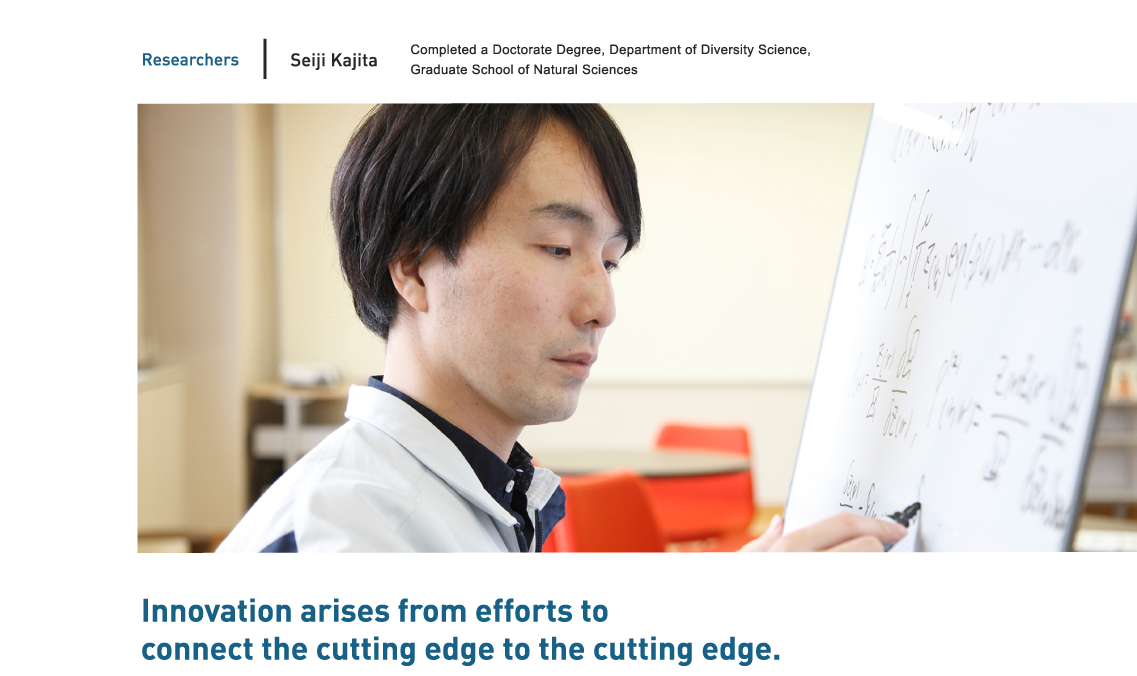


I joined Toyota Central R&D Labs., Inc. after seeing an offer for a position for a person who knew how to
use electronic state calculation and would carry out research in the field of tribology (the study of
friction and lubrication). At graduate school, I was conducting research that used electronic state
calculations. I was not familiar with the field of tribology, but it was an evolving science and I decided
to join Toyota Central R&D Labs., Inc. because the industrial significance of the field appealed to me.
Following a year of training after joining the company, I started actively research in tribology in 2008. I
proactively conducted joint research with Group companies and other research institutes, and worked on
phenomena analysis and new methods based on electronic state calculation and molecular dynamics. In the
context of automobiles, I am still engaged in joint research with Toyota Motor Corporation involving the use
of simulation to analyze friction phenomena and searching for new materials for the purpose of designing or
finding engine oil additives with higher performance.
I have also conducted nanofriction tests using an atomic force microscope myself to experimentally validate
the results of computer simulations. I have also successfully tackled the challenge of analyzing friction
surfaces in real time using a large scale synchrotron radiation facility.
I was able to establish a new method because I had already been conducting research based on both
theoretical calculation and experiments when I was in graduate school.


In 2014, I left to spend two year studying at a national laboratory in Italy to advance my research in
tribology. What surprised me when I went there was that Japan is in no way lagging behind in terms of the
approach or individual skill of researchers.
In Italy, my wife’s efforts at learning Italian helped us build a social network. We made new friends who
helped us out if we ran into problems related to everyday life. I am grateful to the support of the
Administration Division, whose flexibility was impressive. Blessed with an environment that favored
learning, I learned quickly and acquired the resilience to promote myself even outside the comfort of being
in my own country.
After coming back to Japan in 2016, I moved to the new Materials Informatics Research-Domain established by
the company. The research focuses on material informatics. We are pairing machine learning with electronic
state calculation to consider new methods of exploring substances.
This differs from the research fields I have engaged in before, but I do not really feel that there is a
barrier and I believe it suits me. Watching machines learn provides fresh surprises.

Since material informatics is a new field, no definite method has been found yet. At the laboratory, we are
currently mainly focusing on how to merge new AI technologies with our accumulated store of molecular
simulations and electronic state calculations.
Successfully combining different fields to achieve innovation requires flexible thinking and a broad base of
knowledge. Looking ahead, the goal for material exploration is to reach a point where the computer will
create a material recipe.
In past research, the process of striving to achieve a goal is led to discovering new ideas and methods.
Focusing on the goal means you can’t limit yourself to existing methods and techniques. At such times, basic
academic skills become
your own axis.
I believe that pursuing ultimate specialization is not suited to these times of sweeping technological
changes. What matters is having the flexibility to easily adapt to circumstances. Significant strength will
arise from having the basic thinking ability, knowledge, and competence that can be used in any application.
I think it is a good idea to establish a firm foundation of basic scholarship while you are a student.


I feel that two hours is my limit for being able to fully concentrate on my research. In between, I use coffee breaks or idle conversation to clear my mind. One of the good points of Toyota Central R&D Labs., Inc. is that we can connect directly with researchers from a variety of fields. The environment allowing us to speak frankly without worrying about our respective positions enables us to maintain ongoing communication by talking about both our research and other things.
*Details in the article are those at the time of the interview.